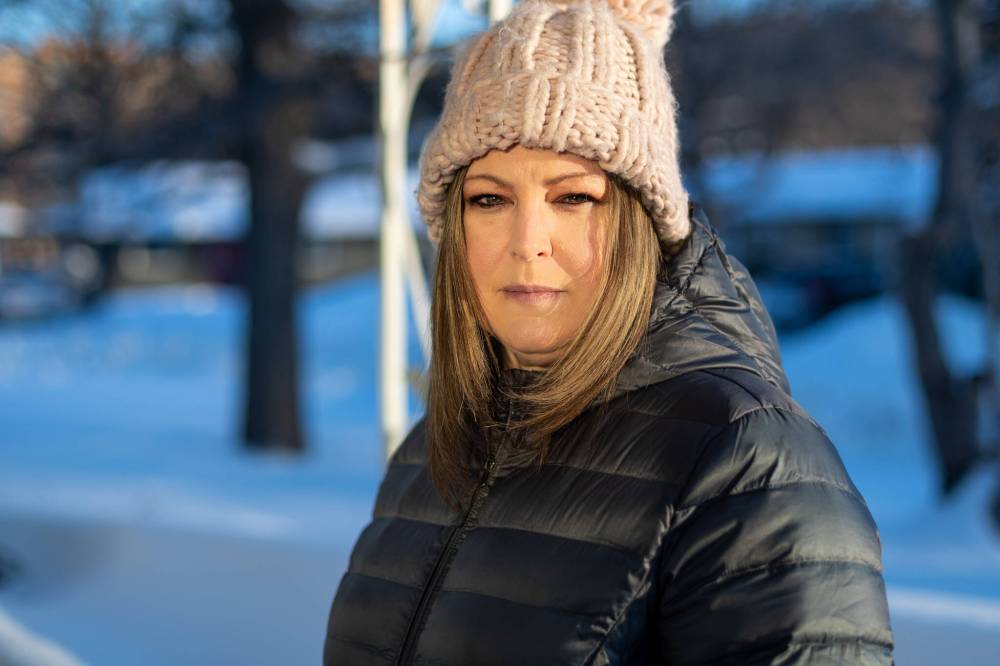‘Frustrating’ brain fog can linger after COVID-19
Documentation, discussion of lasting neurological symptoms urged
Advertisement
Read this article for free:
or
Already have an account? Log in here »
To continue reading, please subscribe:
Monthly Digital Subscription
$1 per week for 24 weeks*
- Enjoy unlimited reading on winnipegfreepress.com
- Read the E-Edition, our digital replica newspaper
- Access News Break, our award-winning app
- Play interactive puzzles
*Billed as $4.00 plus GST every four weeks. After 24 weeks, price increases to the regular rate of $19.00 plus GST every four weeks. Offer available to new and qualified returning subscribers only. Cancel any time.
Monthly Digital Subscription
$4.75/week*
- Enjoy unlimited reading on winnipegfreepress.com
- Read the E-Edition, our digital replica newspaper
- Access News Break, our award-winning app
- Play interactive puzzles
*Billed as $19 plus GST every four weeks. Cancel any time.
To continue reading, please subscribe:
Add Free Press access to your Brandon Sun subscription for only an additional
$1 for the first 4 weeks*
*Your next subscription payment will increase by $1.00 and you will be charged $16.99 plus GST for four weeks. After four weeks, your payment will increase to $23.99 plus GST every four weeks.
Read unlimited articles for free today:
or
Already have an account? Log in here »
Hey there, time traveller!
This article was published 23/01/2022 (1365 days ago), so information in it may no longer be current.
Four weeks after testing positive for COVID-19, a Winnipeg teacher’s brain fog is lifting — and she’s urging Manitobans to document their lasting symptoms of the virus.
Karen Myshkowsky tested positive on Dec. 23, and although she feels better physically, neurological symptoms have lingered. Speaking to the Free Press on Saturday, she said her senses of taste and smell only recently returned and persistent brain fog has now subsided.
Flu-like symptoms, fever, chills, and fatigue showed up “hard and fast,” but the brain fog she experienced began after her physical symptoms started, and it wasn’t mere moments of forgetfulness.

“It’s different than just simply forgetting things. It’s not like walking into the kitchen and going, why am I here? This is like, you know that you know the word but you cannot access it,” Myshkowsky said.
“It’s like there’s a curtain and you can’t get past it, and so it’s frustrating.”
Earlier this week, Dr. Joss Reimer, medical lead of Manitoba’s vaccine task force, spoke publicly about COVID-19’s effects on the brain as she urged Manitobans to get vaccinated and protect themselves. She cited one study from Cold Spring Harbor Laboratory in New York state that found 25 per cent of people who contracted COVID-19 had neurological symptoms including “persistent cognitive impairment.”
“That’s a really alarming finding,” Reimer said during a virtual news conference Jan. 19. The cognitive problems include difficulty concentrating, short-term memory loss, problems with learning and other brain functions. “All of which can significantly affect their daily life at home, at school and at work,” Reimer said.
Brain fog was found to be more common in COVID-19 patients who had severe infections and needed to be hospitalized, but also occurred when people only had mild infections. Reimer said there’s been a link between those needing hospitalization for COVID-19 and an increased risk of brain swelling, “and this might explain how COVID fog happens.”
She cited early research from Israel that appears to show vaccinated people have a significantly lower risk of developing “long COVID.”
For Myshkowsky, it was heartening to hear Dr. Reimer acknowledge the reality of brain fog. The high school teacher experienced brain fog 20 years ago when she was diagnosed with the inner-ear condition Meniere’s disease, but she said for others who are noticing it for the first time, it can be scary.
She dealt with it while conducting online lessons when school resumed for remote learning earlier this month, and found her instant recall of words was gone.
“That’s when I really noticed it, because as an educator, or in any job, really, you have to recall pretty quickly, and it was that recall — I would have these moments of, ‘oh wow, that’s just not there.’ And you get a little panicky.”
Myshkowsky was double-vaccinated and had an appointment booked for her booster shot when she got infected. She credits the vaccine for easing her symptoms and said it’s important for people to speak up about their long-term symptoms.
“We need to talk about this and we need to document it. I think that’s really, really, really important,” she said, expressing the need for solid medical data that helps evolve research and vaccine development.
“That’s key, it really is, to finding a way out of this or studying, are people going to need longer-term medical care?”
katie.may@winnipegfreepress.com

Katie May is a multimedia producer for the Free Press.
Our newsroom depends on a growing audience of readers to power our journalism. If you are not a paid reader, please consider becoming a subscriber.
Our newsroom depends on its audience of readers to power our journalism. Thank you for your support.

